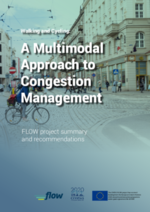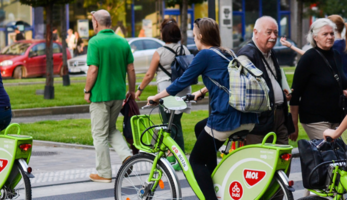FLOW
FLOW developed transport planning tools to encourage active transport modes and tackle road congestion.

About the project
The FLOW project aimed to put walking and cycling on an equal footing with motorised modes from a transport planning perspective by developing a user-friendly methodology. This centred around the use of traffic modelling to assess the effectiveness of walking and cycling measures in addressing urban road congestion.
By bringing together transport modelling, walking and cycling experts, FLOW developed innovative, user-friendly tools to help cities evaluate the effects of walking and cycling measures on congestion. The goal was for the methodology and congestion assessment tools developed to be integrated into the current standard transport impact analysis process.
The modelling software developed within the project was tested in five cities: Budapest (Hungary), Dublin (Ireland), Gdynia (Poland), Lisbon (Portugal), and Munich (Germany). The sixth FLOW city, Sofia (Bulgaria), implemented cycle-to-work campaigns at five major companies and tested the impact analysis methodology. FLOW also developed a portfolio of measures to support the take-up of walking and cycling measures that reduce congestion and improve urban mobility.
Find more in-depth information on the lessons learned in FLOW on p.10 - p.12 of the publication CIVITAS Research Projects - Lessons Learned - 2015-2018.
Cities
Fast Facts
€3,781,696
Project funding
May 2015 - April 2018
Project duration
15 partners
Project partners



























